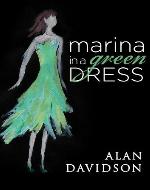“Probing Freewill: A Story of Autonomy and Inevitability” is a comprehensive exploration of the concept of free will, its implications, and the debates surrounding it. This book is structured into five distinct parts, each delving into different aspects of free will:
Tracing the Origins of Free Will: This section examines the evolutionary foundations of free will, the role of genetics and the environment, the concept of nature via nurture, and the cognitive machinery driving our choices.
The Neurobiology of Choice: This part focuses on the brain’s role in decision-making, including brain regions, neural networks, neurotransmitters, hormones, and the impact of cognitive biases and external constraints on our choices.
Morality, Responsibility, and the Lack of Freewill: Here, the book explores the relationship between free will, morality, and responsibility. It discusses the impact of the absence of free will on moral judgments, laws, and societal structures.
The Philosophy of Free Will: This section takes a philosophical approach, tracing historical perspectives, modern debates, and the ethical repercussions of a world without free will.
Navigating a Life Without Choices: The final part addresses the practical aspects of living in a deterministic world. It discusses finding meaning and purpose, psychological well-being, redefining freedom, coping strategies, and practical wisdom for living meaningfully without free will.
The book aims to offer a new perspective on the age-old debate of free will versus determinism, blending scientific evidence with philosophical discourse. It challenges readers to question and reconsider their assumptions about autonomy, identity, and choice. The exploration is intended to be introspective and transformative, encouraging a deeper understanding of the human experience.
The significance of this book lies in its multifaceted approach, combining neuroscience, philosophy, morality, legal systems, and mental health discussions. It’s an intellectual journey that not only delves into the essence of human decision-making but also contemplates the broader implications of these concepts on society and individual lives. It?s designed for readers who are ready to engage in deep self-reflection and willing to challenge their existing beliefs about free will and determinism.





